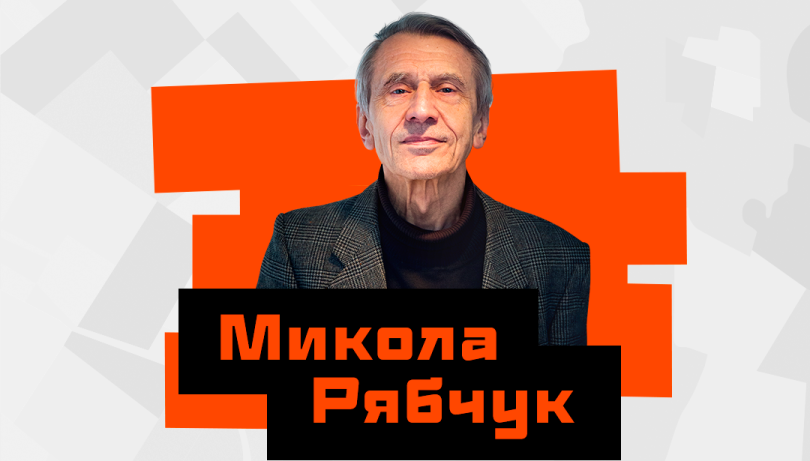“Rallying around the flag”, or In praise of locality
By the end of February 2022, Ukrainians stunned not just the world but also themselves, effectively halting the so-called “second best” army in the world in battles near Kyiv and forcing a shameful retreat. What was truly remarkable was not just the resistance, which was anticipated, but the extraordinary level of organization and, particularly, the civil mobilization of a society that was perceived as hopelessly fragmented, divided, and distrustful of all institutions. This public reaction to external security threats is referred to by sociologists as “rallying round the flag,” named after a famous American Civil War song that both Northern Unionists and Southern Confederates with slight variations in the lyrics used.
A grouping of this kind can only occur when there is a certain level of intra-group solidarity, regardless of political, ethnic, or religious differences. This solidarity arises when internal divisions in society, such as class, language, and regional differences, become less significant than what unites and brings people together in critical moments. This sense of unity is often rooted in a local, internal patriotism that is not always consciously recognized or expressed. Throughout the 18th century, the Russified descendants of the Cossack elites still felt a nostalgic longing for their former “golden liberties” which inspired them to publish ancient chronicles, record folk songs, and even recite Virgil’s Aeneidin their vernacular language. This sense of patriotism also created Ukrainian state-builders out of both the tsarist general Pavlo Skoropadskyi and Communist Party apparatchik Leonid Kravchuk. More recently, it prompted Russified teenagers to chant “Beat up the Muscovites!” at football matches with Spartak and their parents to vote unanimously for independence in 1991.
The war, as a threat to the nation’s very existence, heightened the sense of attachment to one’s region and country, community, symbols, cultural codes, shared history and envisioned future. While the changes that became evident after 2014 and undeniable after February 2022 were significant, they should not overshadow the smaller and slower changes that took place in society since the early years of independence. These changes took place gradually and unevenly, often in spite of, rather than because of, relevant state policies. They occurred simply because each state performs certain nationalizing functions, whether it wants to or not.
Michael Billig’s seminal work Banal Nationalism offers insight into the mechanisms of nationalization. Billig notes that nations are not static entities in the modern world but constantly reproduce themselves. They mark their identity through discourse and use subtle means to remind their citizens of their national place. They also perpetuate a complex array of beliefs, principles, customs, ideas, and practices in people’s minds, often banal and routine. As Billig writes, this reminder is so familiar and constant that it goes unnoticed. The quintessential image of banal nationalism is not a proudly and manifestly waved flag but rather a flag hanging on a public building, almost inconspicuously.
According to Billig, national identity is constantly reinforced by daily rituals and inconspicuous symbols, like documents issued by the state of Ukraine, TV news about events in “our” country, the success of “our” athletes and artists, dissatisfaction with “our” politicians, by the lectures of the specifically “Ukrainian” history and usage of the Ukrainian language as distinct from “foreign.” We go abroad and return “home,” tell jokes about “our” beer, and sometimes sing folk songs deemed apparently “ours.” The war heightened this sense of “ourness” and Ukrainian identity. Still, even in peacetime, the everyday use of these categories and being in a specifically marked discursive space has a subliminal nationalizing effect. A person identifies with this space and labeling, operating within assigned categories, making Ukraine much more prominent in their mental map than on a physical one.
However, specific prerequisites are required for successful nationalization. Neither effort helped the Soviets to create a “one nation” out of the motley imperial population, any more than it helped the Yugoslav communists unite the Croats, Slovenes, and Macedonians with the Serbs. Mechanisms of nationalization make it possible to turn “peasants into Frenchmen” (paraphrasing the title of Eugene Weber’s classic work). Still, they do not make it possible to turn Belgians or Italians into Frenchmen, that is, people who have already established their own nation and moved from a pre-national level (when the concept of nationality lacks symbolic significance) to a national level (when it becomes an integral part of their identity).
The history of Ukraine is the story of its population transforming into a people, upbringing “locals” (as referred to by the popular meme) into a nation. The local identity of this population played a crucial role in their successful nationalization, which would have been impossible if the empire had succeeded in making them into Russians. In a sense, the history of Ukraine can be seen as a success story since a passionate minority was able to win over the passive and ambivalent „local“ majority through small steps and tireless persistence. While it might be a cause for celebration and pride, it is also essential to remember that national self-awareness, like the nation itself, is not given forever but is constantly recreated through discourse and defended, sometimes even by military means.
“Rallying around the flag” is a unique historical moment that does not last forever because the people around the flag are pretty different, and their personal interests under normal circumstances often diverge and sometimes conflict. Nonetheless, the memory of that unity endures, becoming a myth, a symbol, and a part of the national identity. It serves as evidence that “we, the people,” truly embody the ideals of freedom, dignity, and justice.
Translated by Yulia Lyubka and Kate Tsurkan











